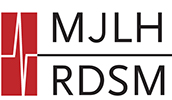3. State what values and wishes are to be considered with respect to other potentially needed treatments such as tracheostomy, artificial nutrition, surgical/ interventional radiology treatments, and antibiotics
Some clients may want to express different values, beliefs and outcomes when treatments, other than life-sustaining and resuscitative ones, are considered. Such differences may arise due to the invasiveness and reduced likelihood of success of life-sustaining treatments in comparison with others. Power of attorney documents would be significantly improved if they addressed this issue. Once again, it is impossible to anticipate all treatments – whether medical, surgical or interventional – that may be needed in the future and under what circumstances.
Any attempts to have such documents to comprehensively address every combination and permutation of illness are frankly unnecessary and unhelpful in the extreme. This approach is to be avoided at all costs, and clients should be so advised. Where people may have specific treatments that they would wish to avoid under any and all circumstances, this needs to be clearly stated. For all other potential treatment needs, a focus on what values, beliefs and outcomes the client would want to have considered is more than sufficient to provide guidance to their designated substitute decision-makers and healthcare teams:
“If I suffer from dementia or cognitive disabilities from any cause and I have lost the ability to recognize those I love, and/or wherein I have lost the ability to understand, process information or communicate in a meaningful way, I direct that antibiotics be withheld in the event of any infections and that all treatments be focused solely on palliating any pain or distressing symptoms I may be experiencing. Furthermore, I would not want to receive any surgical or interventional radiology treatments for any reason if I find myself in such a situation of cognitive dysfunction as outlined above.
Similarly, I direct that I never, under any circumstances, have a permanent percutaneous feeding tube inserted to receive artificial nutrition, as I consider the ability to eat important to my quality of life. In such situations, I direct that any treatments I receive be directed at palliating any pain or distressing symptoms I may have and that I be allowed to die peacefully.
Should any other situation arise, I direct that the spirit of the values, beliefs and wishes that I have outlined above be considered in any and all decision-making with respect to my healthcare and my personal care.”
The author wishes to encourage and engage in discussion regarding the directives she proposes here. Please take a moment to express your thoughts and critical commentary in the comments section below.
About the Author

LAURA HAWRYLUCK received her MD in 1992 from the University of Western Ontario where she also served her Internal Medicine residency. She completed a Fellowship in Critical Care at the University of Manitoba in 1997 and received her MSc in Bioethics in 1999 from the Joint Centre for Bioethics and the Institute of Medical Science at the University of Toronto. From 1999-2001 she was Assistant Professor of Critical Care/Internal Medicine, Queen’s University, Kingston, Ontario. In March 2000 she was appointed Physician Leader of the national Ian Anderson Continuing Education Program in End-of-Life Care at the University of Toronto and is currently Associate Professor of Critical Care Medicine at the University of Toronto. In 2002, she was awarded the Queen’s Golden Jubilee Medal for contributions to Canada in recognition of her work in creating the Anderson Program and improving end of life care for Canadians. Dr. Hawryluck is co-author and editor of “Law of Acute Care in Canada” to be published shortly by Carswell, a division of Thomson Reuters.
Dr. Hawryluck is deeply involved in international humanitarian projects. She has worked with critical care and burn units in Indore India and Cote d’Ivoire on a variety of quality improvement and educational initiatives. She was co-creator and co-Director for RCCI of the first Doctorate in Medicine Program in Critical Care in the entire country of Nepal. She worked with the Nepal Medical Council as an international consultant to enact a Code of Ethics and Professionalism for all physicians in Nepal.

